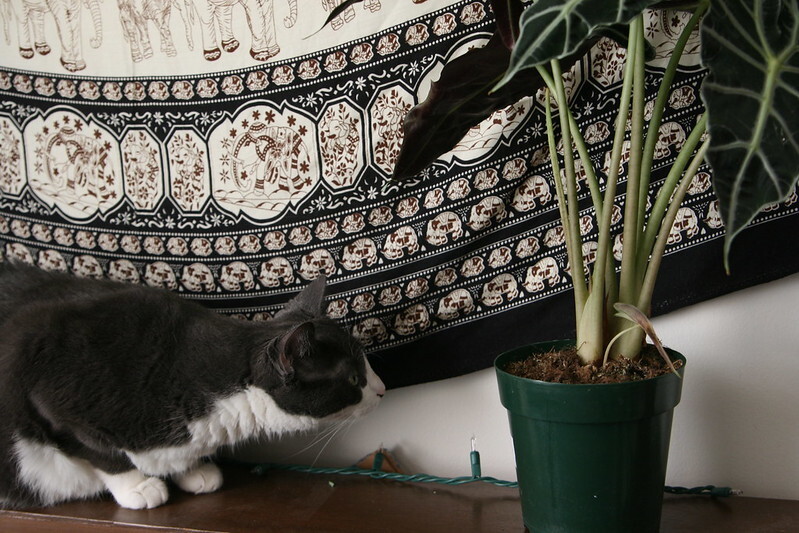A mature Elephant Ears plant is a head-turner thanks to its leafy good looks. Exercise caution because the stems and leaves of this rare plant are poisonous and can also cause skin irritation. While rarely fatal, it is still best to admire the foliage from a distance. If you need to handle the plant, consider wearing gloves or wash your hands right away using soap and warm water. If you have young children or pets, be aware and ensure everyone is safe.

Are Elephant Ears Poisonous to Children
Elephant Ears are poisonous to children. Touching the stems or leaves can cause skin irritation and possibly a rash and itching. Eating the leaves, stems, or sap can cause a burning sensation in the mouth and throat and lead to swelling.
Are Elephant Ears Poisonous to Dogs
A dog will become sick after eating the toxic leaves or stems of an Elephant Ears plant. Animals that have ingested parts of the plant may experience excessive drooling, mouth irritation and swelling, and difficulty swallowing. A dog may also experience vomiting, diarrhea, slowed heart rate, and even a lack of coordination. Consuming Elephant Ears plants is rarely fatal, but in large enough quantities, eating the plant can be very damaging and possibly even deadly.
Are Elephant Ears Poisonous to Cats
Elephant Ears contain insoluble calcium oxalates that are toxic to cats. Cats can experience an adverse reaction after eating any part of the stems or leaves. After ingesting any part of the plant, a cat may drool, experience swelling or irritation of the lips, tongue, and mouth. Vomiting and diarrhea are also symptoms of poisoning.

Photo by Quinn Dombrowski, unmodified, Flickr, Copyright CC BY-SA 2.0 Deed
Are Elephant Ears Poisonous to Other Animals
Horses can experience poisoning after eating the leaves or stems of Elephant Ears. The animal may experience oral irritation, like swelling of the mouth and throat and difficulty swallowing.
Symptoms of Elephant Ears Poisoning
Always check with your doctor or veterinarian for guidance if you suspect Elephant Ear poisoning. Here are some common symptoms to look out for:
- Skin irritation and rash
- Swelling of mouth and throat if ingested
- Nausea
- Vomiting
- Diarrhea

Preventing Elephant Ears Poisoning
Fences are an effective solution to keep horses away from Elephant Ears plants. Physical barriers can also work for dogs or grow the plants in outdoor areas that your dog may not be able to access. Fences and barriers are generally not very practical for cats. If you bring your Elephant Ears inside for the winter or grow them as a houseplant, then be mindful of your pets.
Pet Poison Helpline
If something were to happen to your furry friend, and you suspect that they are suffering from (insert plant) poisoning, there is a poison control hotline to call for 24/7 vet advice. It is called the Pet Poison Hotline, and their phone number is (855) 764-7661.
Click here for a complete list of Pet Safe Plants.
Sources:
"Elephant Ears." American Society for the Prevention of Cruelty to Animals. aspca.org
"Elephant ear poisoning." National Library of Medicine. medlineplus.gov
 |
Author Alison Cotsonas - Published 12-13-2021 |


